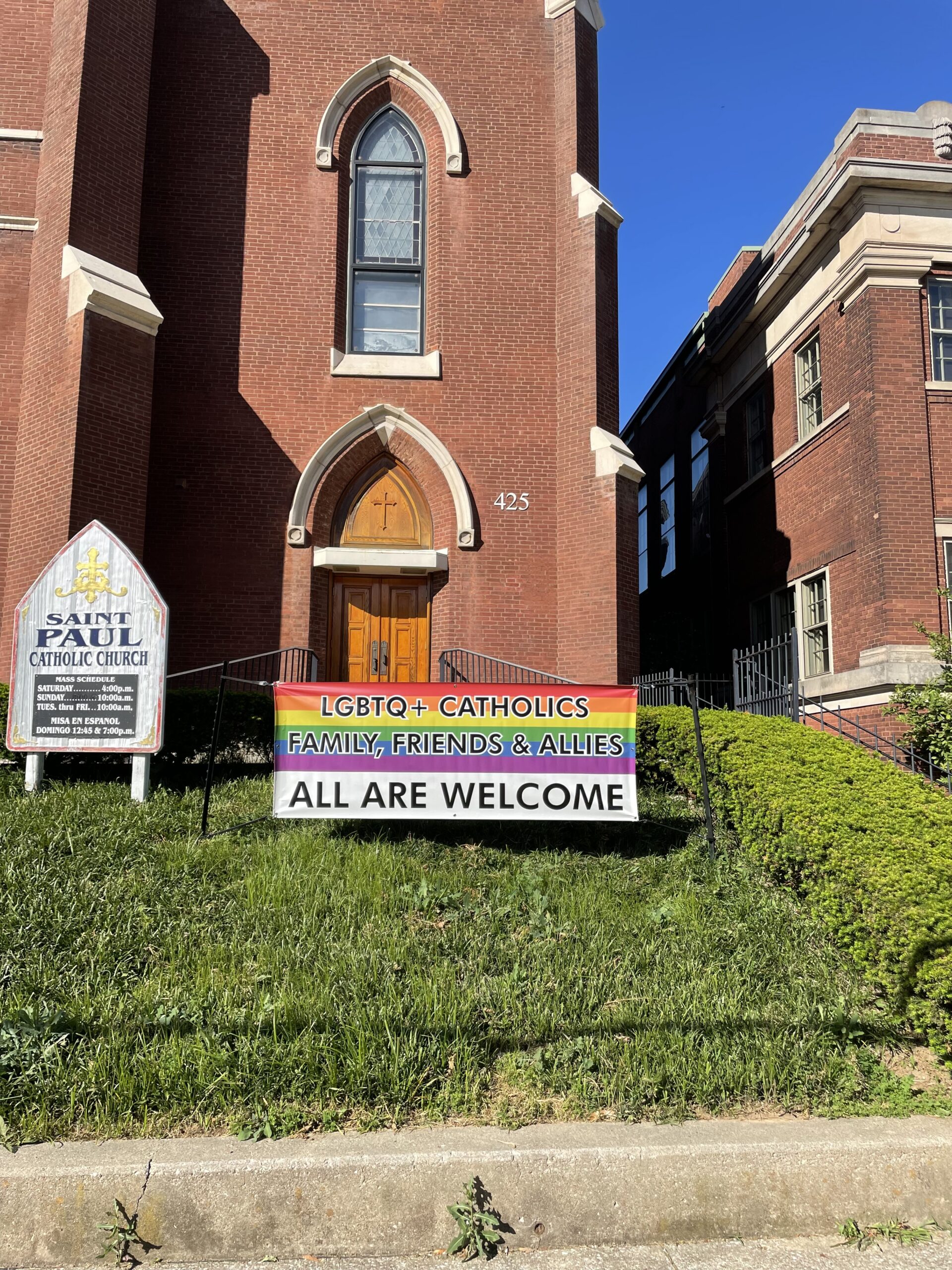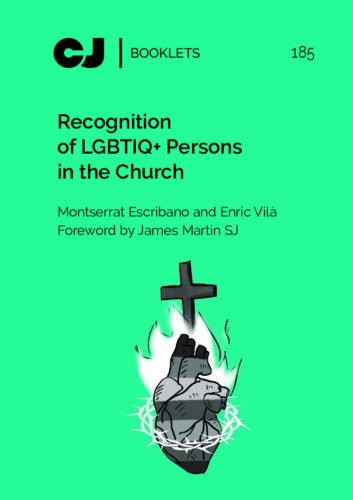With the best of intentions, I went to a diaconate ordination last month. I was excited for the young man who was to be ordained. He’s a good man with servant’s heart. I’ve worked with him for a few years in the parish I serve in Kentucky. Even before he was an “official” seminarian, during the height of the pandemic, he was living at our parish and helping wherever he could. I wanted to be of support, so I went to the Mass.
When I got to the cathedral, I sat near the back. Instinctively, I knew it probably was better to sit in the back, rather than get looked at and accused of upstaging the young man’s ordination with my presence. As the procession made its way from the back door to the sanctuary, the congregants turned toward the main aisle. A few of the ordained smiled at me.
I could tell that others were not happy to see me. I know some of them wish I’d just go away. Some have actively tried to push me away by posting ugliness about me and my work on social media. Some have tried to undermine my ministry and get me fired. As a few years ago, one priest in the procession told me not to go to Communion.
As the procession made its way to the sanctuary, I had a physical reaction: I felt sick to my stomach and prayed I could make it through the Mass so I wouldn’t have to walk out.
As the procession made its way to the sanctuary, I had a physical reaction: I felt sick to my stomach and prayed I could make it through the Mass so I wouldn’t have to walk out.
My ministries, Catholic LGBTQ+ Ministry Lexington and Fortunate Families, are the source of incredible grace for many, and incredible unrest and disgust for others, expressed through unrelenting meanness. It is well known they think I should be excluded from the eucharistic table.
I’ve come to terms (or so I thought) with the fact that I feel like an intruder in my own Catholic community beyond the doors of the Historic Saint Paul Church, where I am employed. Everyone says we are different at the church, and I think it’s true. Gay people like me are made to feel at home there. They are warmly greeted and acknowledged. It is well known that we who represent the church—lay and ordained—will affirm LGBTQ persons. We have their backs.
It was moving to watch Alex, the young man, ordained to “be a waiter,” as Bishop John Stowe, O.F.M. Conv., of Lexington, Ky., said in his homily. But it was sad to watch, once again, an ordination that excluded people like me. If people like me are ordained, it is kept quiet. Maybe one day that will change before I’m too old.
How many like me may have heard the Lord calling, just like he called repeatedly to Samuel, only to have to said in reply, “Lord, you can’t be calling me. They don’t want my kind”? I’ll never be convinced God does not want nor does not call my kind.
During the Mass, I felt like an outsider looking in. At the preparation of gifts, I thought that maybe I had P.T.S.D., and if so, offered that the Lord to transform it like bread and wine. I offered up the hurt I was feeling as I saw some clergy who had succeeded in making me feel like an outsider in my own church.
My queer siblings tell me they feel out of place, not at home, unwanted and disgusted by the church, and so they stay away. I shared many of those feelings during the ordination Mass.
I understood, deeply and intensely, the feelings of hurt and rejection experienced by LGBTQ people, feelings I hear about so often when I speak to groups or lead days of discernment and visioning. My queer siblings tell me they feel out of place, not at home, unwanted and disgusted by the church, and so they stay away. I shared many of those feelings during the ordination Mass.
A few times, I had to fight back tears. I wasn’t really in communion with those gathered around the table that Alex was being ordained to wait upon. The Eucharist that is supposed to unite us all was, for me, the thing that made me feel like an interloper, a persona non grata.
At the exchange of peace, I had to make a decision: Was I going to walk down the aisle to receive holy Communion or was I going to refrain from making a personal mockery of it, knowing full well eyes would be upon me? If history is any indicator, I would probably be harshly judged by receiving Communion. I decided I’d stay in the pew. I was not properly disposed to receive, I convinced myself.
I sat there and thought about being told not to receive holy Communion a few years ago and was amazed what an impact that still had on me. I never thought it did until that day. “Amen! El Cuerpo de Christo…We become what we receive. Amen. Amen.” The lyrics made me sad. I didn’t feel like part of the church.
People tell me over and over how fortunate I am to work in Bishop Stowe’s diocese. A kinder, more prophetic and more loving shepherd you’d be hard-pressed to find today. But that does not mean everyone, ordained and lay, are in step with his vision. In fact, perhaps his vision of a church that welcomes those on the peripheries is distasteful to those who rally to make life hell for people like me.
Sure, we know we have the bishop’s support, but the hurt still stings. Fears are still real. And we carry that hurt and fear for a long time, as I’ve come to understand today. I thought I was different. I’m not.
When Deacon Alex said, “Go in peace, the Mass is ended,” I was relieved. He was of service to me already. Those words were a balm. At the end of Mass, I kept my eyes fixed on the words to the hymn “Lord, You Give the Great Commission.” I wanted to believe every word I sang. I also kept my eyes fixed on the program so I wouldn’t be tempted to look up at the clergy processing out. I couldn’t wait to get out of the cathedral and get to my car parked across the street. I wanted to go home—or anywhere—because the cathedral did not feel like somewhere safe.
I was with a young man, a member of the LGBTQ community, whom I’d invited to the Mass. I thought about keeping all this from him—my thoughts, feelings, my hurt. But on the way home, I shared pretty much what I’ve written here. I wanted him to realize that we all go through struggles with our faith, with loving the church and with being part of the Body of Christ.
I wanted him to realize that we all go through struggles with our faith, with loving the church and with being part of the Body of Christ.
I wanted him to know that we’ve got to try and stay strong with the hope we can make the church a better, safer and more loving place for people like us. I wanted him to know that his LGBTQ siblings often feel like fleeing church, but they are heroic in riding out the storm because, like Samuel, they feel called to stay. Some are even called to ordained service, too.
I wanted him to know that, although I may appear to be strong and have it all together, I struggle and cling to just a tad of faith sometimes. I wanted him to know that I felt like running and crying, like I wasn’t part of the Body of Christ gathered together in that cathedral. He may feel that way sometimes, just as many queer people do.
Most of all, I wanted him to know that I’m proud of him and think he’s heroic for wanting to be part of this often-bumbling mess we call church. And I wanted him to know that when I have my hand on his shoulder and he becomes part of this church, it is alright to have many different feelings, even tears and great disappointment, and still love our Mother Church. She is a mother who constantly calls us to her table, even when we feel like we don’t want to eat.




